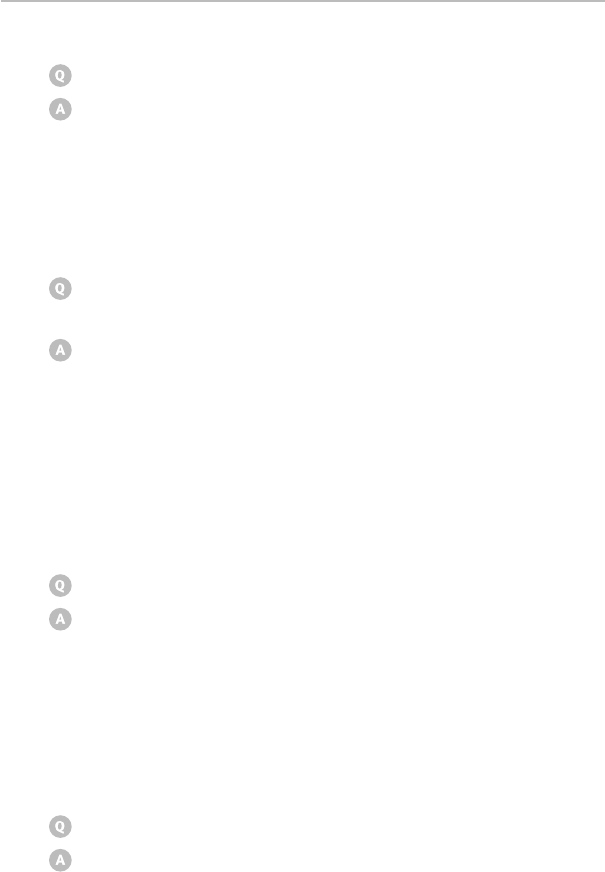
142 brilliant copywriting
not so interested in consultancy or training. I really enjoy doing consumer-
focused stuff like books, mailers, pieces of print and ads – in fact I get
most buzz out of doing short stuff like posters. Rightly or wrongly I describe
that as copywriting.
How did you get started?
I did English at university and eventually got taken on at Haymarket
Publishing as a sub. At the time they did a design mag called Direction
where all the cool people worked. I was desperate to get in there, and
eventually they hired me as a writer-cum-sub, apparently on the strength of
my haircut. Anyway, Direction eventually folded but by that time I’d built
up lots of contacts in the design industry. Today the only editorial I do is
my column in Design Week.
How useful was that training as a journalist?
Oh, very. It helped me develop my own style, also subbing is brilliant
discipline. In copywriting no one really checks your work for spelling
mistakes or typos, so it really helps there. Actually I think the skills are
quite transferable and subbing is undoubtedly a good start for a
copywriter.
You’ve met lots of writers over the years – what makes a really good
one?
I think they write like they speak, or at least how they’d like to speak.
I’m not a particularly good speaker, and if I could change the way I speak it
would be to make it far closer to how I write. Good writers are also good
observers and they’re great at picking things up – the whole magpie thing.
They’re also adept at going into character, although one of my bugbears at
the moment is that everyone is going into the same Innocent-esque
character. It’s not Innocent’s fault but that’s what’s happened.
Any great tips you’d care to share?
The first sentence is the most important, but the second sentence is the
hardest to write. The first line is the hook that has to provoke the reader in
some way, but once you’ve done that you’ve got to follow it up. That’s why
the second sentence matters so much, because it’s got such a vital
supporting role justifying and expanding the first sentence. Also don’t leave
M08_HORB7347_01_SE_C08.QXP:M08_HORB7347_01_SE_C08 2/6/09 14:25 Page 142

Interviews 143
things to the last minute. I’m one of these people who needs to be at the
station 20 minutes before the train leaves.
Any big influences on your writing and thinking?
Definitely P.G. Wodehouse. What’s great about him is that he’s
accessible but the sentences are so well constructed and so witty. I’m just
constantly amazed by his skill. I’m very impressed by some members of 26,
particularly Tim Rich and Will Awdry, and with classic 80s ad people like
Tim Delany and David Abbott.
How do you go about planning and preparation?
I go over everything they send me, reading and digesting. Then if it’s a
complex job I get a big pad of paper and jot down ideas in little sentences
and phrases. Next I’lI highlight any that look promising and I start writing,
usually with a headline. I don’t order the ideas in advance; instead I might
do three of four versions, and show the client the best two – I’m talking
about short pieces here, not books obviously. After I’ve done the headline
I’ll really concentrate on the second sentence as I said earlier, and build it
up from there, subbing as I go and editing very closely. Anything up to
around 1000 words I’ll write straight out of my head; if it’s longer I might
make a list of the main points I want to get over and chunk it up.
Let’s talk about briefs. The tighter the better?
Not necessarily. I like the responsibility of coming up with an idea that’s
mine rather than one provided by the client. Once you’ve established trust
with a client I quite enjoy finding my own way into a job. I don’t like it if
they’re too specific, because that means there’s no room for manoeuvre.
The main thing is having enough information. I hate having to call people
all the time for information, only for them to tell me, ‘Well, you’re the
writer’. Well, exactly, I’m the writer, not a mindreader.
How do you know when something is working?
When Deborah says so. I’m only half joking – it’s important to have
someone totally honest to review your work. If something isn’t quite
working it’s a good idea to try deleting the first paragraph. Generally you’re
just warming up and that’s just wasting space and scene setting. I tend to
get to the meat in the second paragraph.
L
M08_HORB7347_01_SE_C08.QXP:M08_HORB7347_01_SE_C08 2/6/09 14:25 Page 143

144 brilliant copywriting
And finally, any advice for the aspiring brilliant copywriter?
Just try to inject some personality into it. Inexperienced writers tend to
go into this strange formalese when they write copy, so it’s about deciding
what sort of character this business might be, which in turn is about talking
to the client and translating that into natural speech. Sometimes they
embrace it, sometimes they don’t, but you’ve got to try. And if you’re stuck,
try playing The Ramones at top volume. It works for me.
In a nutshell:
G Subbing is superb training for copywriting.
G The best copywriters tend to write like they speak, or rather
how they’d like to speak.
G Borrow ideas from anywhere and everywhere.
G Learn to mimic, but don’t copy the crowd.
G The first sentence is the most important, but the second has
to work even harder.
G Go as far as you can creatively, for your own sanity as much
as anything. The client will always rein you in if needs be.
G Get someone impartial to review your work.
G Never underestimate the power of a good haircut in
securing your first job.
brilliant
questions and answers
Tim Riley
‘Brilliant copywriting captures the spirit of a brand. A lot of advertising copy
feels like it’s been written for an awards jury. Brilliant copy isn’t just written
to entertain you and your mates, it’s a commercial thing that aims to sell
something to someone.’
Thanks to a two-hour delay caused by badgers undermining a signal box in
the Stevenage area I miss my appointment with Tim Riley, Head of Copy at
M08_HORB7347_01_SE_C08.QXP:M08_HORB7347_01_SE_C08 2/6/09 14:25 Page 144

Interviews 145
AMV BBDO London. Graciously Tim makes himself available for a later slot,
and we head over the road to a rather splendid old hotel whose cavernous
atrium boasts an impressive pot plant jungle and discreetly tinkling cocktail
piano. Tea and biscuits arrive, eventually followed by first one then two
cups, and suddenly all is well.
So Tim, what exactly do you do?
I’m a writer at Abbott Mead Vickers BBDO. My actual title is Head of
Copy – which sounds quite impressive, but in truth it means I get phone
calls from account managers asking about the correct use of a semi-colon.
Do you do much writing these days?
I still write every day – print and TV. I don’t do much body copy as
that’s something that only tends to get produced once the client’s bought
the idea. But yes, I do still write live text, so I’m still a working copywriter.
How did you get started as a copywriter?
I didn’t have a clue what to do when I left school so I thought I’d put
off making a decision by doing a foundation course. Then I discovered I
couldn’t draw as well as I thought I could, so I decided to become a
graphic designer. Then at art college I discovered I wasn’t much good at
that either. So I did a D&AD course that involved going to a different
agency each week to get a brief, which you’d work on and then get a crit
the following week. The best bit about it was that as a writer all you had to
do was suggest a headline, while the art director had to do a complete
layout. I realised that, for a lazy person, copywriting was the way forward.
Was there any senior figure who guided you in that first job?
To begin with, there was a writer called Alan Curson who would very
politely say if something wasn’t good enough and advise me to change
this or that. Plus my creative director, Alan Tilby, was a copywriter. He’d
worked at CDP in the 1960s and was part of the same generation as
Charles Saatchi and Alan Parker. People were very generous with their
time back then. He used to say we were lucky – when he worked at CDP,
his creative director –achap called Colin Millward – had a hole in the
wall of his office and you had to hold your ad up and he’d just shout ‘yes’
or ‘no’.
L
M08_HORB7347_01_SE_C08.QXP:M08_HORB7347_01_SE_C08 2/6/09 14:25 Page 145

146 brilliant copywriting
What did you learn at BMP?
The basics – keep it short, don’t be indulgent. The opposite of writing a
novel. With that you take an idea and expand it to 300 pages. For an ad
you take maybe five pages of briefing and turn it into one sentence. Plus, I
learned that no one is waiting to read what you’ve written. As somebody
writing advertising, you’re basically an irritant in people’s lives, so you have
be as charming as you can.
Just to change tack slightly, is the death of body copy greatly
exaggerated?
I judged some awards yesterday, and there were lots of ads with plenty
of great copy. But would you read those words if you weren’t on a
copywriting jury? I don’t know. I think there’s an argument for long copy
when there’s something vital to say, but those cases are few and far
between. In fact the only place I really see long copy ads now is when I’m
judging awards, so I’d have to say it’s in decline. But I don’t miss body copy
– I didn’t like writing it and people didn’t much like reading it. Quite a
good match really.
Any preference on print vs. digital when it comes to writing?
Not really, but I do think that digital hasn’t matured yet and no one’s
quite cracked how to do it. I think that’s an amazing opportunity. Think
about the first TV ad shown in the UK – a tube of toothpaste encased in a
block of ice, on screen for two minutes or whatever, while a voice just
droned on. It took another ten years for TV advertising to come of age, and
perhaps digital is in a similar position. We haven’t really seen its full
potential yet.
What constitutes a really good brief for you?
I prefer a tight brief but only as long as I agree with it. I was in a
meeting once where we were all a bit stuck and someone asked, ‘Well,
what does the client think the advertising should be?’ And the answer was
they didn’t know, at which everyone sighed and tutted. But that was a
good thing. Imagine if they were dictating exactly what we should be
doing. I mean, that’s why they employed us.
M08_HORB7347_01_SE_C08.QXP:M08_HORB7347_01_SE_C08 2/6/09 14:25 Page 146
..................Content has been hidden....................
You can't read the all page of ebook, please click here login for view all page.
